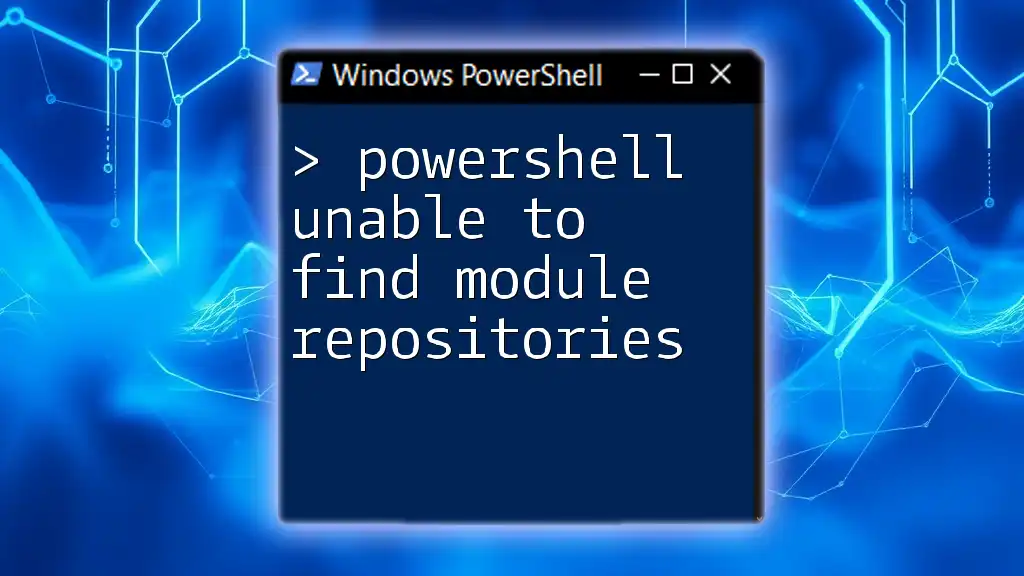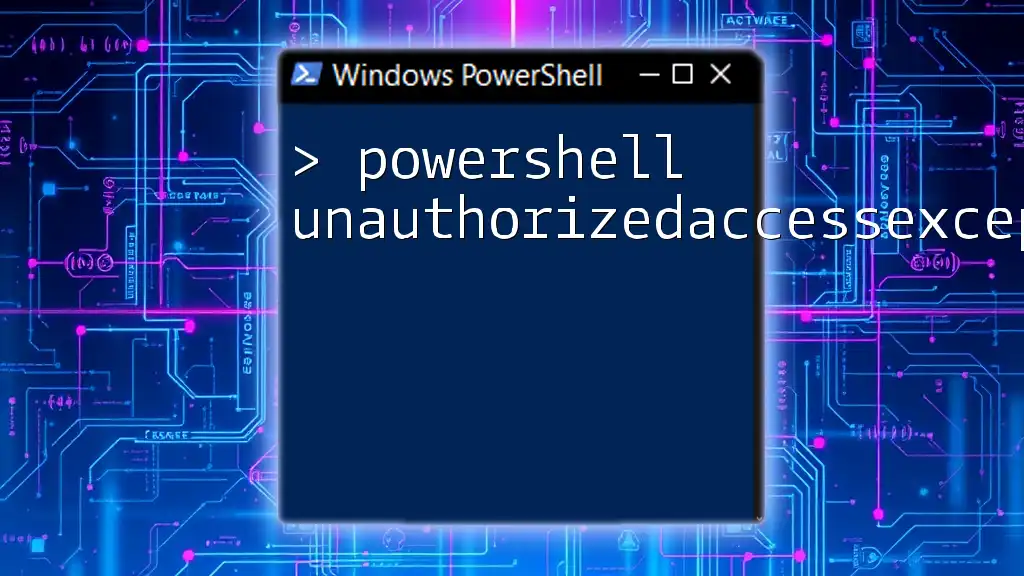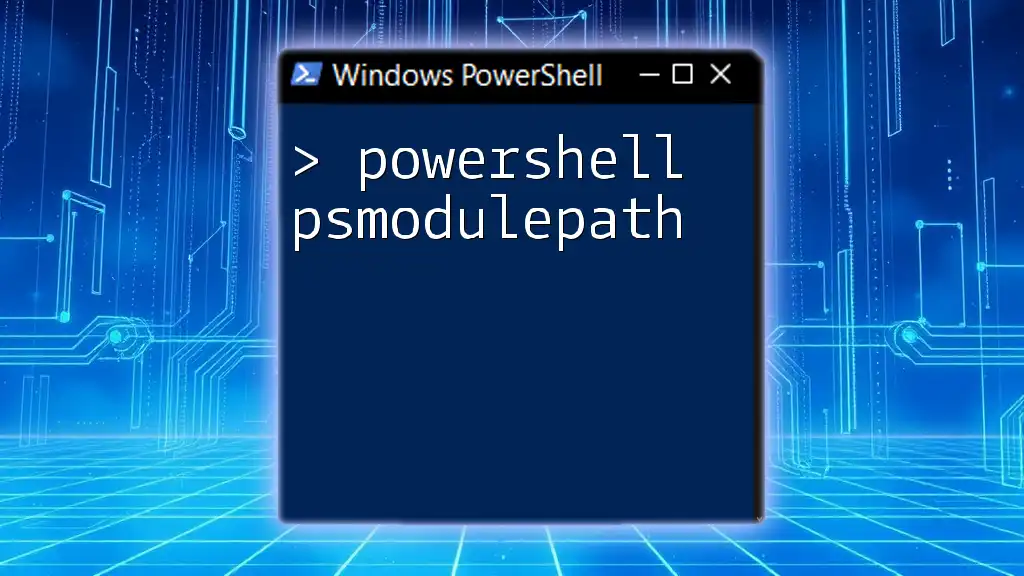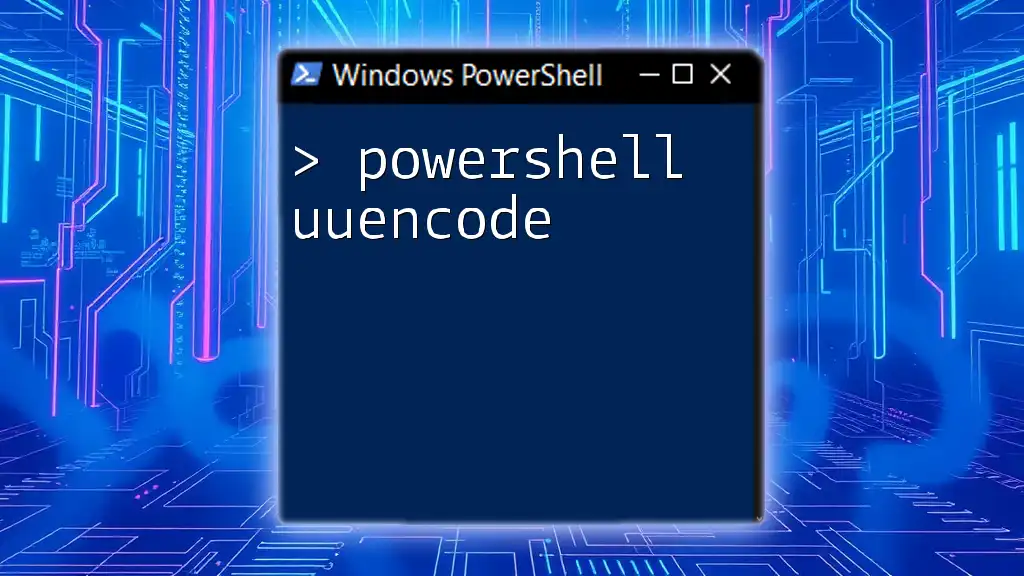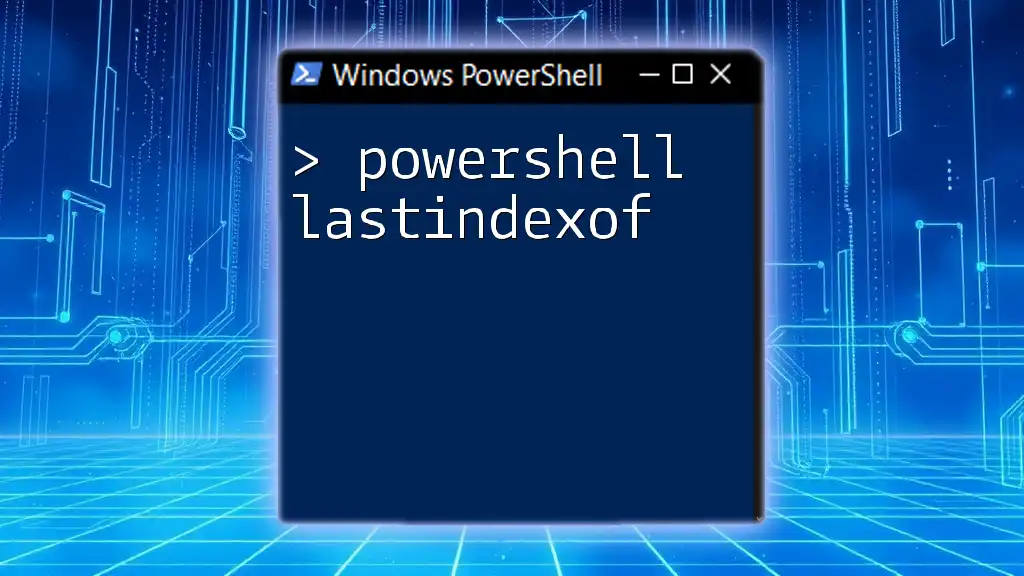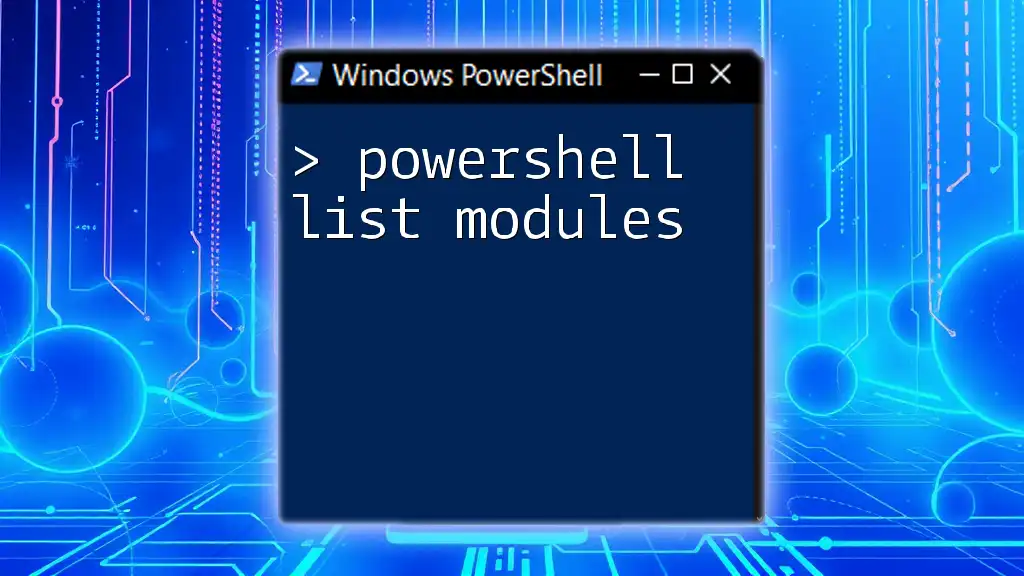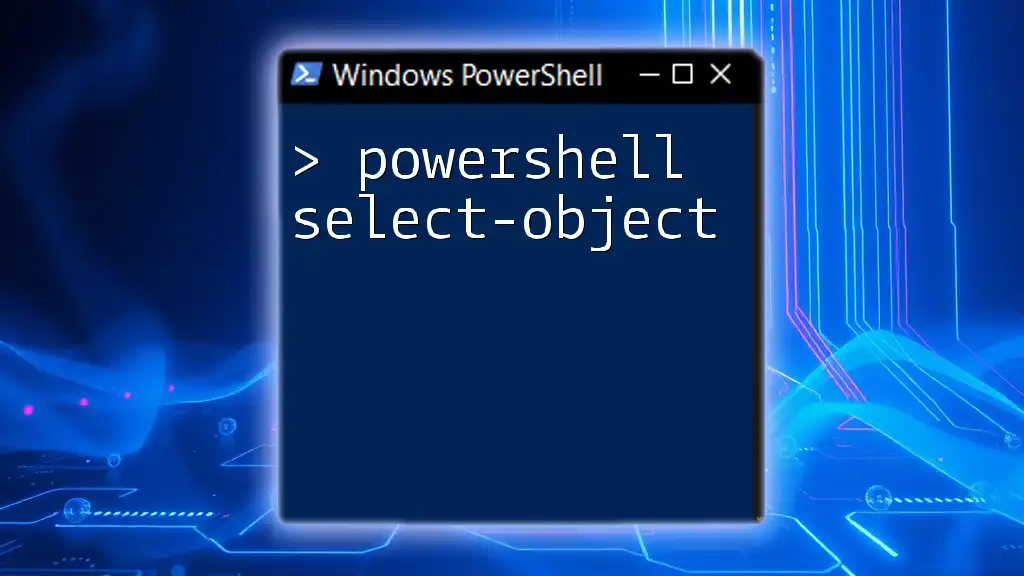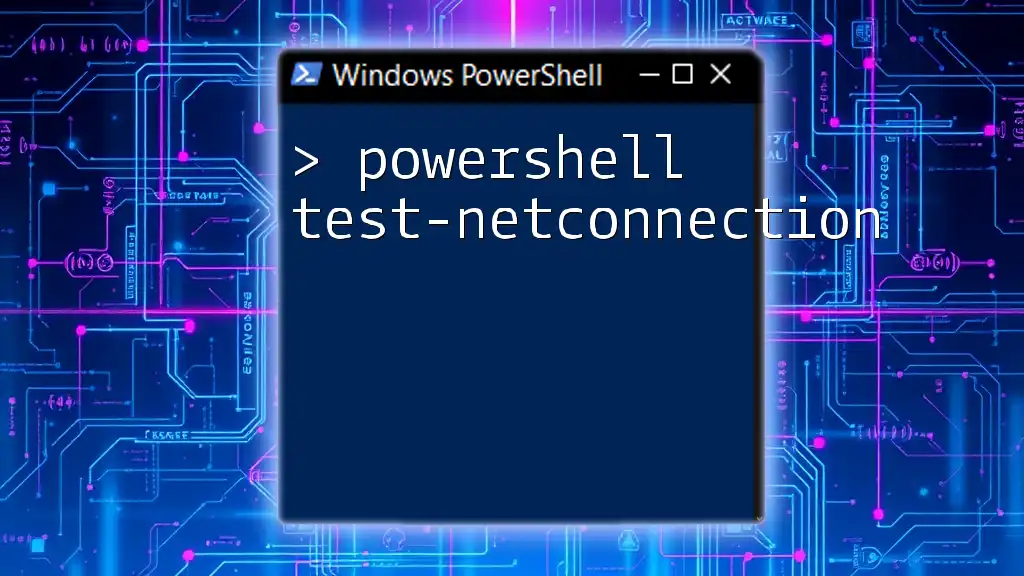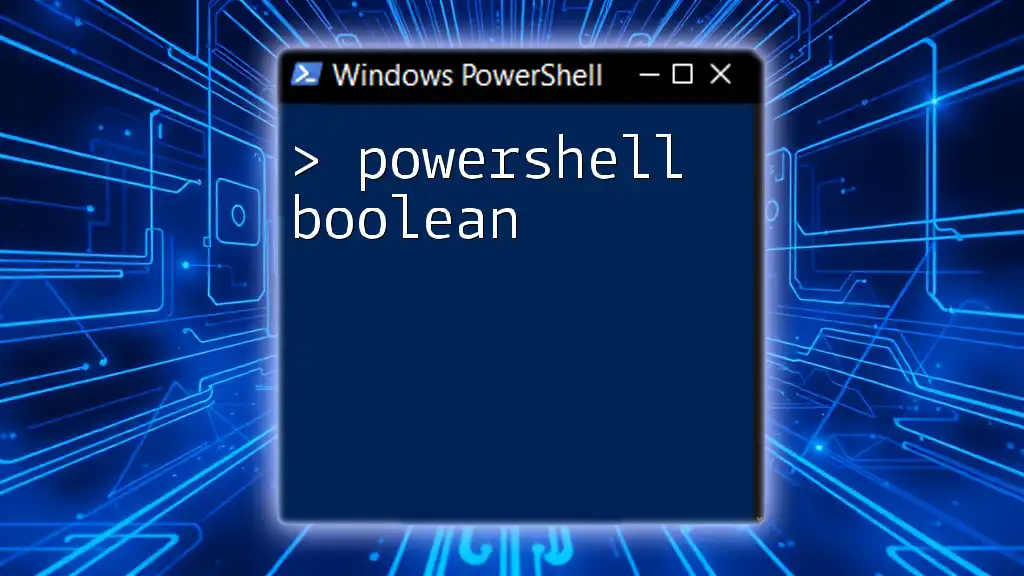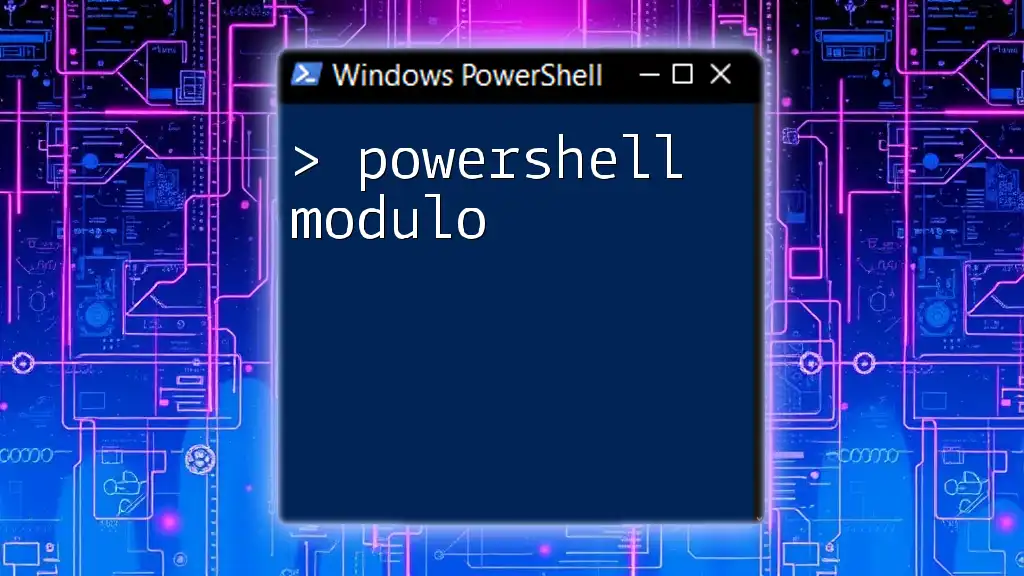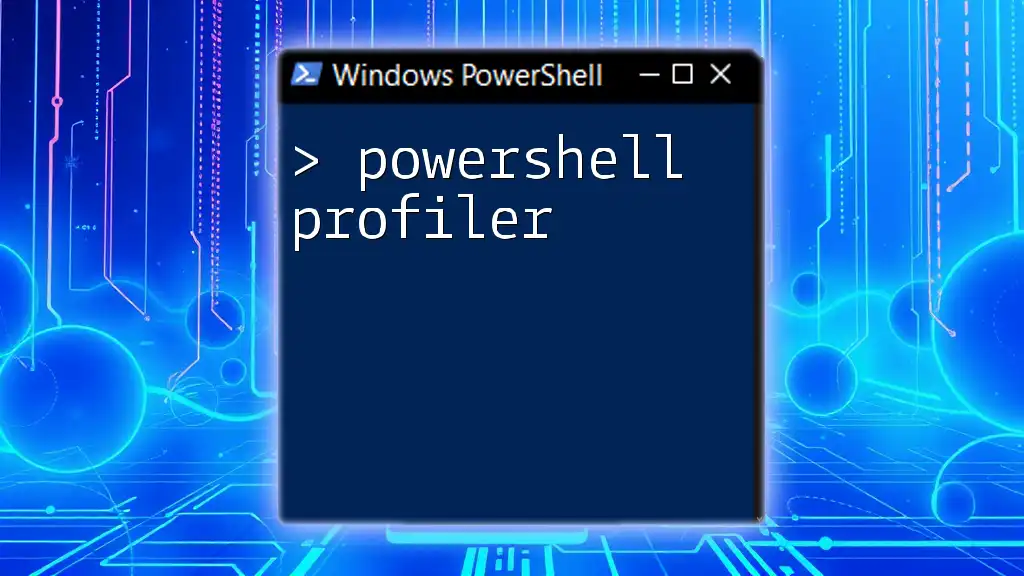When encountering the "unable to find module repositories" error in PowerShell, it typically indicates that no valid repositories are registered for installing modules, which can be resolved by adding a repository using the `Register-PSRepository` command.
Register-PSRepository -Name 'PSGallery' -SourceLocation 'https://www.powershellgallery.com/api/v2/' -InstallationPolicy 'Trusted'
Understanding PowerShell Module Repositories
What are Module Repositories?
Module repositories serve as centralized storage locations where PowerShell modules can be hosted and retrieved. They enable users to access, download, and install modules efficiently, bringing a wealth of prebuilt functionalities to PowerShell scripts. The PowerShell Gallery is the most prominent example, hosting thousands of community-contributed modules that enhance the capabilities of PowerShell. Other repositories, such as NuGet, also serve specific needs but are less commonly used for PowerShell modules.
Common Repository Issues
Even seasoned developers occasionally struggle with module repositories. Common issues revolve around network connectivity, incorrect configurations, or outdated versions. These problems may trigger error messages like, "powershell unable to find module repositories," significantly impacting productivity and script performance.
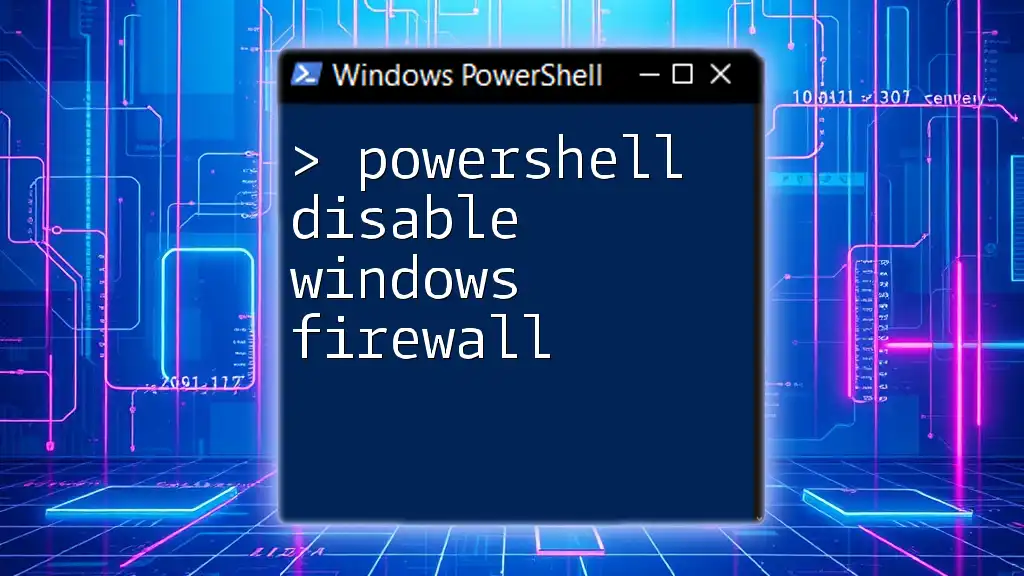
Troubleshooting "Unable to Find Module Repositories" Error
Identifying the Error
When you encounter the "powershell unable to find module repositories" error, it can halt workflow and cause frustration. This issue typically arises in situations where PowerShell cannot locate or access the repositories, whether due to lack of registration or network restrictions.
Checking PowerShell Version
Using an outdated version of PowerShell can lead to compatibility issues with module repositories. You can check your current version by executing:
$PSVersionTable.PSVersion
If your version is outdated, consider upgrading to a more recent version compatible with the repository protocols.
Verifying Module Repository Configuration
Checking Installed Repositories
To troubleshoot further, you should verify the current module repositories registered on your system. Use the following command to list them:
Get-PSRepository
This command returns details about location settings and availability. If the list is empty or doesn’t include familiar repositories, that indicates a configuration issue.
Adding Missing Repositories
If you find that required repositories are not registered, you can easily add them back. For instance, to register the PowerShell Gallery, run:
Register-PSRepository -Default
This command sets up the repository with necessary defaults, making module installation possible again.
Addressing Internet Connectivity Issues
Diagnosing Network Problems
Connectivity issues can also prevent access to repositories. To diagnose potential problems, you can test connectivity to a specific URL:
Test-NetConnection powershellgallery.com
This command helps confirm whether your PowerShell environment can reach the repository’s URL.
Proxy Configuration
In organizational environments, firewalls and proxies can obstruct access. It’s crucial to ensure PowerShell is configured to bypass these hurdles. Set up your proxy by using:
[System.Net.WebRequest]::DefaultWebProxy = New-Object System.Net.WebProxy('http://<proxy>:<port>')
Replace `<proxy>` and `<port>` with your specific proxy details. This step allows PowerShell to pass through the proxy for repository access seamlessly.
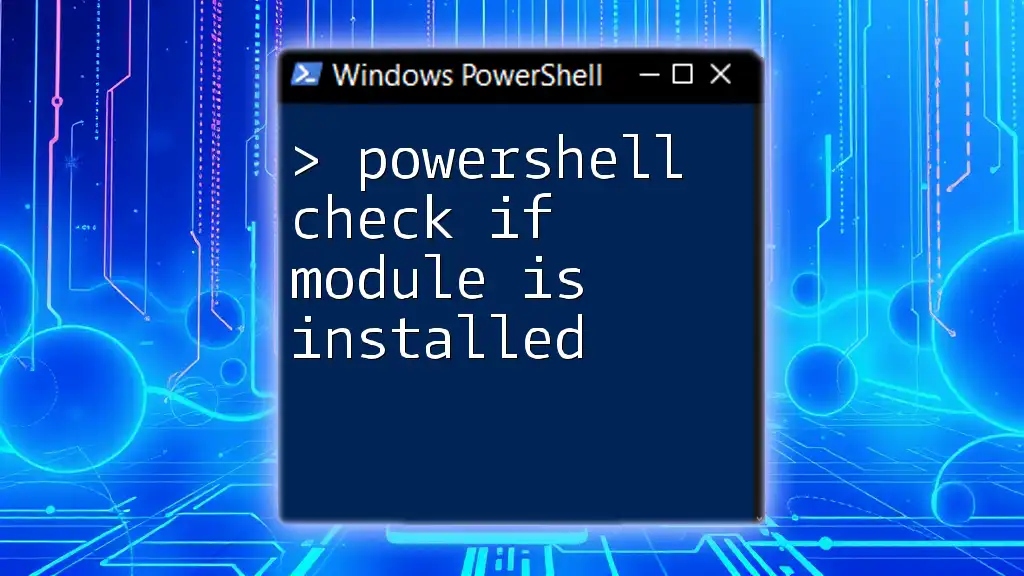
Adjusting PowerShell Execution Policy
Execution Policy Overview
The execution policy in PowerShell governs the ability to execute scripts and load modules. A restrictive execution policy can inadvertently block module installations, resulting in errors.
Modifying the Execution Policy
To resolve issues related to execution policies, you may want to set it to "RemoteSigned," allowing local scripts to run while requiring remote ones to be signed. Use the following command:
Set-ExecutionPolicy RemoteSigned
Admin rights may be required to change these settings, and modifying execution policies should be done with caution, understanding the security implications involved.
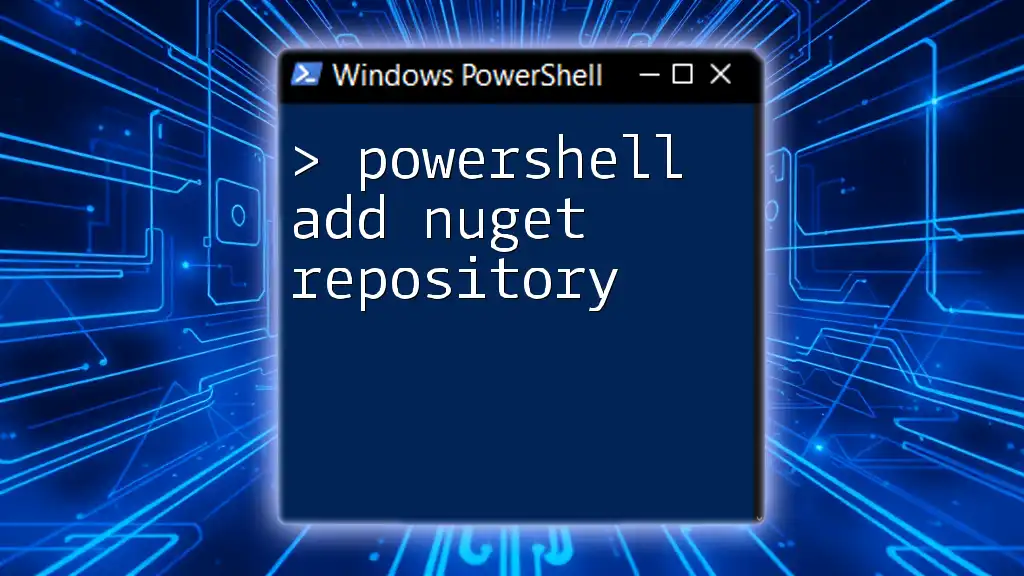
Manual Repository Registration
What to Do When Automatic Registration Fails
If the automatic registration of repositories fails, performing a manual registration may be necessary. To manually register the PowerShell Gallery, use:
Register-PSRepository -Name 'PSGallery' -SourceLocation 'https://www.powershellgallery.com/api/v2/' -InstallationPolicy Trusted
This command sets the directory and flags the repository as trusted, allowing future installations without further prompts.
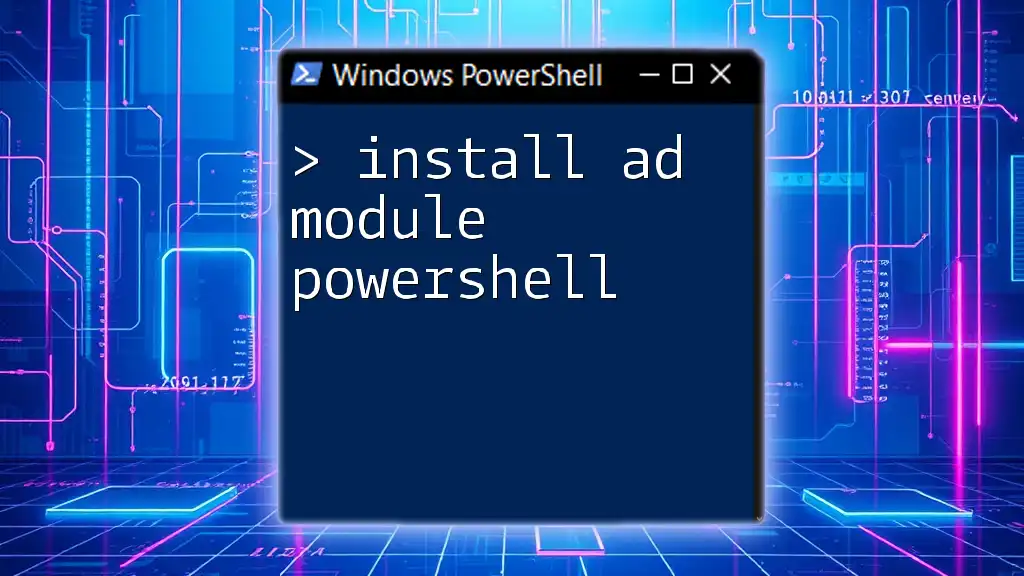
Verifying the Installation of Modules
Testing Module Installation
Once you’ve configured the repositories, it’s wise to verify your ability to install modules. To test this, you can attempt to install a sample module:
Install-Module -Name 'ModuleName'
Replace `'ModuleName'` with a specific module you wish to test. If the installation is successful, you’ve resolved the core issues surrounding repositories.
Troubleshooting Installation Failures
Should module installations fail despite correct repository settings, consider the output messages carefully. They can clue you in on missing dependencies, invalid commands, or internet-related errors.
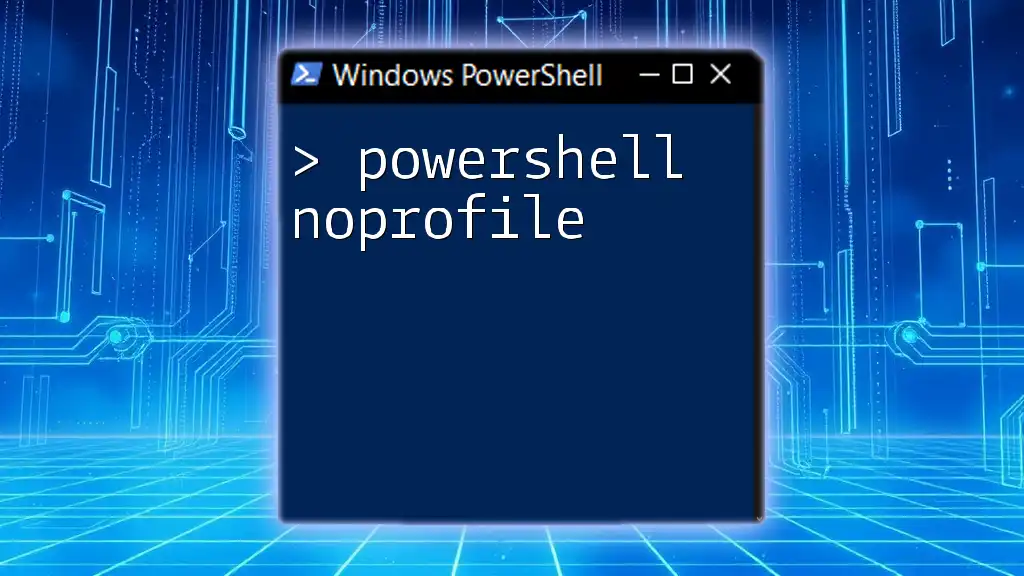
Additional Resources
Microsoft Documentation
For a deeper understanding or further troubleshooting, Microsoft’s documentation provides comprehensive resources on PowerShell and module repositories. Links and references can solidify your knowledge base.
Community Forums and Support
Engaging with community forums such as Stack Overflow, PowerShell.org, or even Reddit can offer additional insights and solutions from fellow PowerShell users who have faced similar issues.
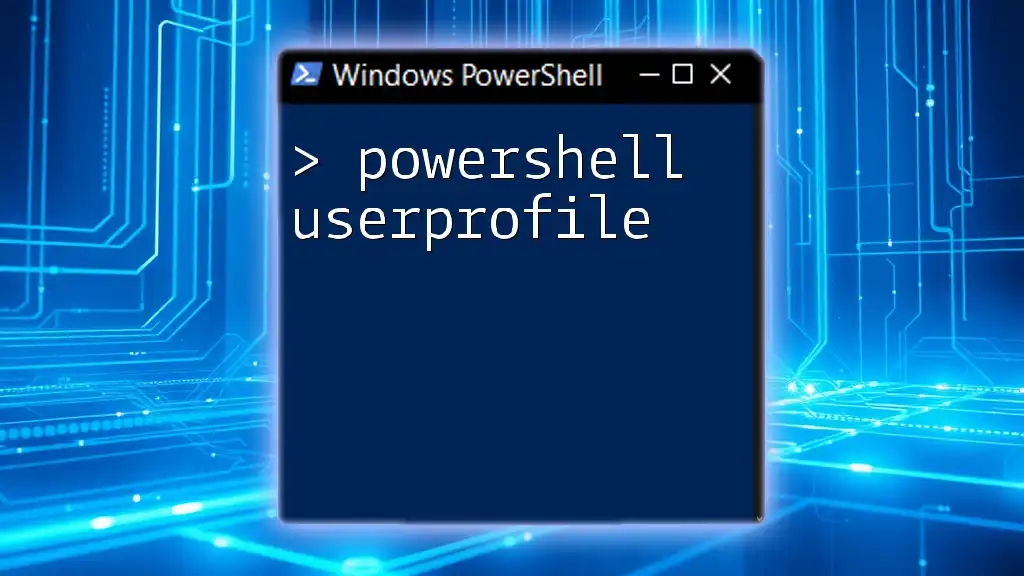
Conclusion
By understanding the complexities of PowerShell module repositories and the reasons behind the "powershell unable to find module repositories" error, you can resolve issues more effectively. Remember to regularly verify your configurations, ensure you have internet access, and adjust execution policies when necessary. The next time you encounter this common issue, you’ll be equipped with the knowledge to troubleshoot effectively.
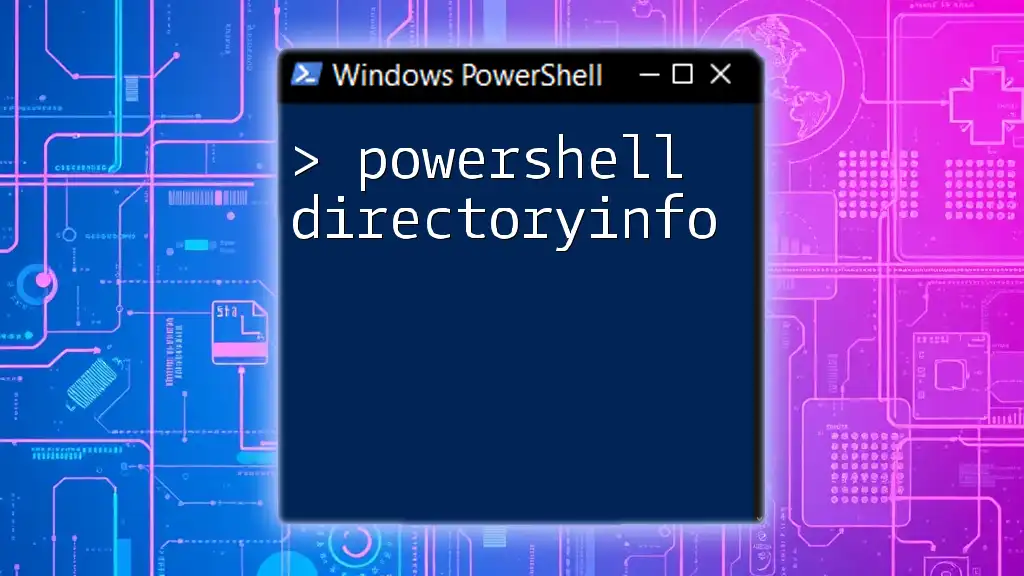
FAQs
What to do if PowerShell Gallery is down?
When the PowerShell Gallery is unavailable, consider checking status pages or community forums for information. You may also explore alternative repositories temporarily until the issue is resolved.
How do I keep my repository configurations secure?
Ensuring that your execution policies are set appropriately and only using trusted sources can help keep your configurations secure. Regularly audit your registered repositories to ensure they are essential and reputable.
Can I create my own module repository? If so, how?
Yes, creating your custom module repository involves hosting files on a web server and leveraging the PowerShell PackageManagement module to register it. This can be a great way to share internal tools within your organization.

